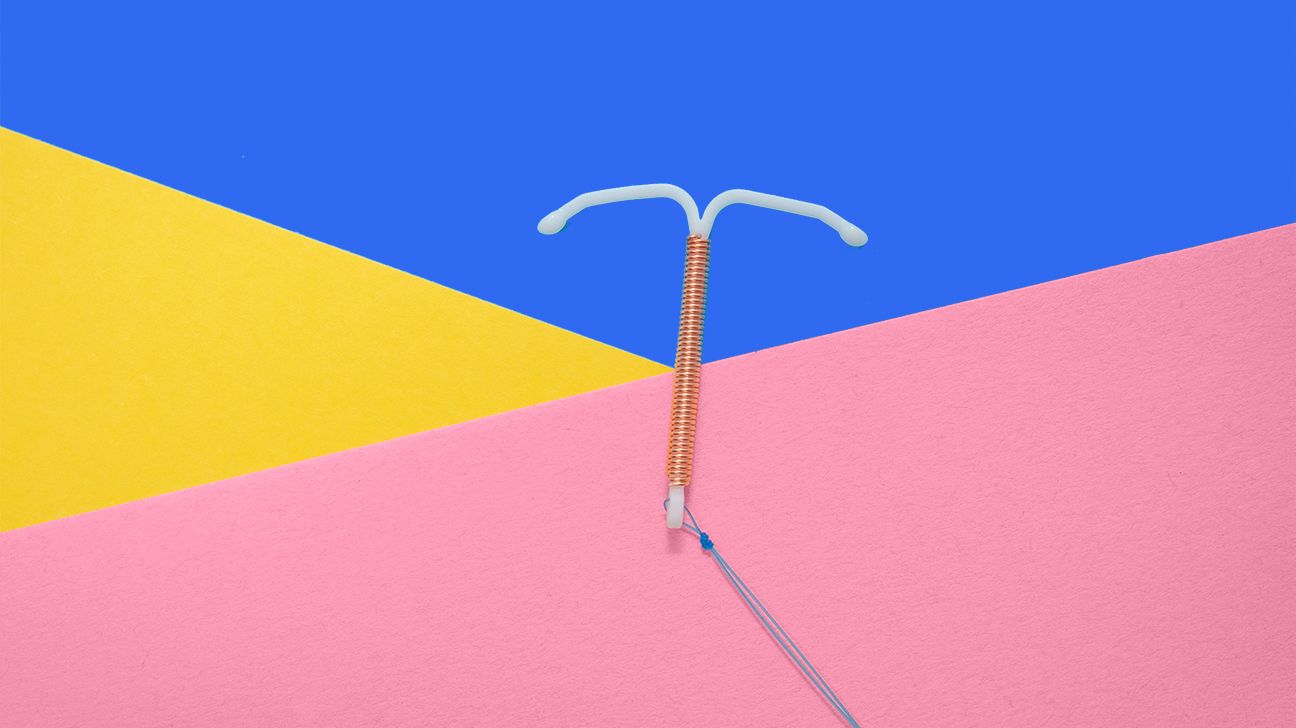Intrauterine devices (IUDs) are hella effective at keeping your uterus baby-free. But this T-shaped trinket might have an annoying effect on your skin. Hormonal IUDs might cause acne outbreaks and other issues. Here’s how to cope.
The fab five of IUD brands
The five IUD brands approved by the Food and Drug Administration (FDA) are:
- Mirena
- Liletta
- Skyla
- Kyleena
- Paragard
Paragard is the only nonhormonal IUD. The other brands release a synthetic hormone called progestin. Progestin can prevent pregnancy but may cause acne flare-ups.
For some lucky folks it’s smooth skin sailing after adolescence. Other peeps get adult acne on the reg. No matter when you break out, it’s hard to pinpoint the exact cause of acne.
Flare-ups can be sparked by a new skin care product, lifestyle changes, or an extra dose of stress. It can also be triggered by birth control.
Some BC methods contain estrogen and progestin. This blend of hormones may lower testosterone levels and therefore help battle acne. But plain ol’ progestin on its own might prompt androgenic activity. This can cause your face to freak out.
How IUDs can cause acne
The progestin in hormonal IUDs may raise your body’s level of androgen hormones. These are male sex hormones (e.g., testosterone).
This spike can overwork your sebaceous glands and cause excess oil production. This can clog up your precious pores and break you tf out.
If you’re already prone to hormonal breakouts you might be more affected. Sigh.
Hormonal acne tends to pop up as cystic acne. It usually appears around the chin and jawline.
The copper IUD is 💯 percent hormone-free. That means it won’t worsen acne. It’s a good choice if you’re predisposed to period pimples.
Keep in mind: The only copper IUD approved by the FDA is Paragard.
Is your IUD already chilling in your uterus? Don’t worry, babe. There are plenty of options to improve and treat your acne.
Slay your skin care routine
At-home remedies can help send your pimples packing. One of the best solutions is a daily skin care regimen. Here are some tips:
- Cleanse your skin at least once per day.
- Try a new chemical exfoliant (e.g., salicylic acid). This can help clear clogged pores. Only do this a few times per week, though, because it can dry you out.
- Use a retinol cream before bed. This can help promote skin cell turnover.
Pimple PSA: As tempting as it is, DO NOT pick at your skin. This does way more harm than good.
Diet change
The scientific link between diet and hormonal acne is still a bit hazy. But, some dietary changes might help keep breakouts under control.
Consider these changes:
- Cut back on foods and drinks that quickly raise your blood sugar (sorry simple carbs 😥).
- Opt for a low-glycemic diet which can reduce blood sugar levels. This lowers your risk of heart disease, type 2 diabetes, and (maybe) acne flare-ups.
Prescription options
If basic lifestyle changes don’t do the trick, you may want to ask your doc about alternatives. They may prescribe a medication that can help.
Types of acne medications:
- Isotretinoin is an oral medication that may help zap your zits. Brands include Accutane, Claravis, Sotret, Amnesteem, Absorica, and Myorisan.
- Spironolactone is another oral option. It blocks the hormones that can cause acne.
- oral antibiotics, such as minocycline and tetracycline
- Topical prescription retinoids may help reduce excess oil, inflammation, and bacteria.
Your bod needs time to adjust to its new house guest. Breaking out the first few months after insertion is normal. Hopefully, your acne will calm the eff down within the first 6 months.
If you do decide to have your IUD removed, keep in mind that it may take a few months for side effects to buzz off. If your acne is super severe it might take longer.
There’s no sure way to know how an IUD will affect your skin. But there are some important things to consider before taking the plunge.
Copper vs. hormonal
Copper IUDs might be better for your skin than hormonal IUDs. Paragard is hormone-free and won’t aggravate acne. They’re also 99.9 percent effective at keeping your eggo from getting preggo. Woot!
Combining IUD with meds
Certain prescription meds can help treat acne even if you have a hormonal IUD. Talk to your doc about what brand is best for you.
Keep it clean
Never underestimate the power of a stellar skin care routine. Cleanse and moisturize on the daily. You can also use an astringent or toner. Those with salicylic or glycolic acid are the best for acne-prone skin.
Don’t forget the SPF
Protect your beautiful self with sunscreen. This can reduce inflammation and dryness. There are lots of brands that won’t clog your pores.
If your IUD and skin become sworn enemies, you may want to switch it up. Be sure to talk to your doctor first, though. They can help pinpoint the cause of your acne. If your IUD is def the culprit, you may want to try another form of birth control.
Contraceptive pills may be a good choice. Pills with both estrogen and progestin can help control acne by lowering testosterone levels. The patch and the ring are also a safe bet for your skin.
Everyone is different. Some #TeamIUD peeps can skip on by without a single spot. If your skin is taking a serious hit, you still have plenty of options.
Give your skin some extra TLC and talk to your doc about alternative solutions. You’ll be saying adios to acne in no time.

